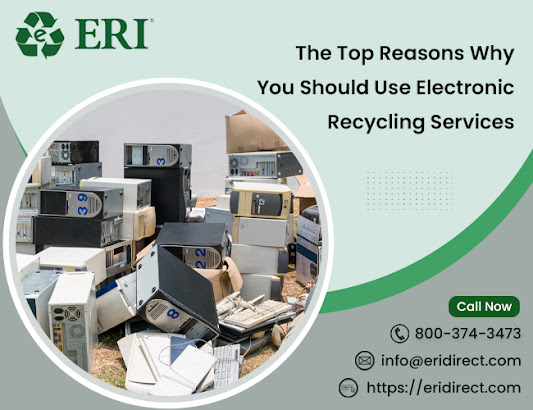Where Does E-waste Go?
Electronic waste makes up over 5% of all municipal solid waste. Known as e-waste, discarded electronic products often end up in landfill, but they should not. Some of them can be reused or repaired if still operational. If they are irreplaceably broken, electronic recycling restores reusable materials.
Computers, cell phones, TVs, stereos, printers, and DVD players are among the common electronic products that can be recycled or refurbished. Others contain refrigerators, microwaves, lamps, air conditioners, power tools, and video-game consoles.
Recycling e-waste recycles useful materials containing valuable metals such as copper or gold. Manufacturers use them to create new products. It diminishes the energy needed to refine, mine, and simulate new materials and lowers greenhouse gas emissions.
Nevertheless, the present estimates that about 20% of all e-waste is recycled worldwide. In the United States, the average rate of recycling e-waste is a bit higher, hovering at 25%. Much electronic waste ends up in landfills or gets burned, wasting resources and discharging toxic chemicals and other pollutants, such as mercury, cadmium, and lead, into the groundwater, soil, and atmosphere to the liability of the environment.
The e-waste undergoes different phases when recycled.
How is E-waste Refined?
Mechanical processing separated copper, aluminum, and circuit boards. It leaves the material stream mostly plastic. The separated materials are prepared for sale as usable raw materials for building new products. E-waste recycling has taken place in many ways, removing plastics and metals from reused items.
When the hard drive destruction, some products are separated from it that are recycled.
Electronic recycling has gained popularity in the last few years, and people are contributing well to encouraging recycling. As e-waste recycling is efficient in separating materials, it makes recycled devices form into new products. The main aim is to save the environment and prevent landfilling activities.



